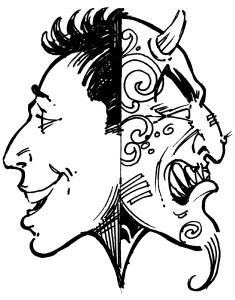Niccolò Machiavelli was a 16th century Florentine political philosopher and statesman. Attributed to him among other things is the adjective “machiavellian”, which means cunning and unscrupulous, but in reality Machiavelli was one of the forerunners of a political ideology known as realpolitik. Realpolitik holds that morality and politics are separate entities in and of themselves and it calls for actions that are situation-sensitive. With this in mind, Machiavelli sketched the effective leader based on the cunning principle of simulation and dissimulation.
Essentially leaders should have the characteristics of kindness, compassion, being faithful to their word, devoutness etc, but they should have the ability to do the opposite when necessary. Thus they simulate the above qualities and dissimulate the ability to do the opposite when it is called for. In a world filled with “wretched creatures” being too kind can lead to being exploited by your people and being the reverse will lead to you being deposed or even beheaded. Therefore, you must strike the balance between these qualities and their opposites, showing that you are principled, but can also make tough decisions. This was a revolutionary concept in political philosophy since in the past, people like Plato and Thomas More wrote idealistic works, sketching unrealistic utopias. Machiavelli based his philosophy on the world as it was, and not as people wanted it to be.


